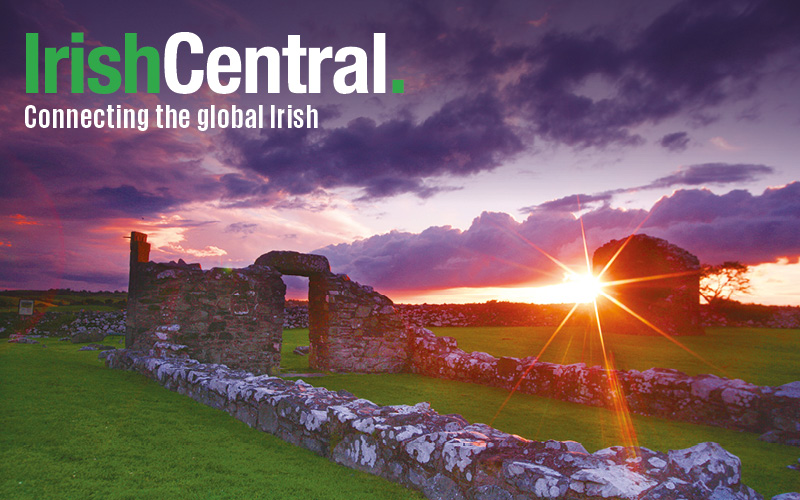Israel could elect a new Prime Minister with strong Irish connections as recent opinion polls indicate that Isaac Herzog has every chance of ousting Benjamin Netanyahu in the election scheduled for St. Patrick’s Day.
The Herzog family is seen as something of a political dynasty in Israel, but the family has very deep roots in Ireland as well. Isaac’s grandfather, Yitzhak HaLevi Herzog, was the first Chief Rabbi of Ireland, practicing in Belfast from 1915 to 1919 and then in Dublin until 1936. These were seminal years in the birth of Ireland as a modern nation state and Herzog, a fluent Irish speaker, was well known for his strong republican views and friendship with Eamon De Valera, which gained him the moniker ‘The Sinn Féin Rabbi.’
In 1936, he immigrated to historical Palestine to become the Chief Ashkenazi Rabbi of the then British Mandate of Palestine, where he remained until his death in 1959. His son, Chaim, was born in Belfast and educated in Dublin. Chaim fought in the British army in World War II and in the Jewish paramilitary group the Haganah, in the 1948 war that led to the creation of the state of Israel.
Chaim Herzog was elected as the sixth President of Israel in 1983, serving two five year terms. His presidency included an official state visit to Ireland in 1985, during which he opened the Jewish History Museum in Dublin and unveiled a sculpture in Sneem, Co. Kerry in honor of his childhood friend Cearbhall Ó’Dálaigh, the fifth President of Ireland.
This visit of an Israeli head of state to Ireland was a seminal moment in Irish-Israeli relations and precipitated the opening of an Israeli embassy in Dublin in 1993. Relations between the two countries have often been difficult, with frequent tensions over Ireland’s strong role in peacekeeping duties in neighboring Lebanon.
The Irish Defence Forces were repeatedly attacked by both the Israeli army and Israeli supported militias, the killing of Cpl. Dermot McLaughlin in 1987 marking a particularly low ebb in dealings between the countries. Ireland also allowed Yasser Arafat to open a delegation of the Palestine Liberation Organization (PLO) in Dublin two years before Israel opened its embassy in Dublin.
In Israel’s upcoming election, Isaac Herzog’s Zionist camp, a coalition between the Labor Party and Tzipi Livni’s Hatnuah, is riding high in the opinion polls, neck and neck with incumbent PM Benjamin Netanyahu’s Likud party. A victory for the Zionist camp would see Herzog sworn in as Prime Minister for the next two years, with Livni taking up the reins for the final two years of the four year term.
The center-left Zionist camp is seeking to capitalize on widespread voter disenchantment with 14 years of continuous right-wing government and six years of Netanyahu’s leadership, going with the simplistic slogan of ‘It’s us or Him.’ Herzog has promised a “revolution,” which “can’t be stopped” if elected, pledging to prioritize social welfare issues and to adopt a new approach towards peace talks with the Palestinians.
Prominent Israeli journalist and political commentator, Gideon Levy, however, believes that a Herzog/Livni government will only serve to copper fasten the occupation noting “Herzog has already announced that he will devote five (!) years to negotiations that could be wrapped up in five weeks. In other words, Herzog has no intention of reaching an agreement. The occupation will become even more entrenched… And the last chance for a two-state solution — if it still exists — will be squandered.”
Tzipi Livni’s credentials as a more moderate leader are even shakier, an ex-Likud member, she once said of Israel’s Operation Cast Lead in Gaza in 2008-09 which left more than 1,400 Palestinians dead “our troops in the Gaza strip behaved like hooligans, which I demanded of them.”
Modern day relations between Ireland and Israel remain frosty. The current Israeli mission in Dublin is deeply unpopular among the Irish public for its attempts to smear pro-Palestinian activists and for its periodic bizarre and jingoistic outbursts on the embassies’ official Twitter account. In addition, Ireland recently voted unanimously in both the Seanad and the Dáíl to recognize the state of Palestine, albeit in a non-binding resolution.
Israel’s foreign minister, Avigdor Lieberman, denounced the move, drawing comparison with the failure of some European states to stand up to Nazi Germany. “The behavior of countries such as Sweden and Ireland is the very same… as when they abandoned Czechoslovakia [in the 1938 Munich agreement].”
Isaac Herzog’s recent meetings with Gerry Adams and Charlie Flanagan suggest a more open attitude towards engagement with Ireland and on the international scene. The Israeli embassy in Dublin, after a request for comment said “regardless of who wins the election in March, the Israeli government will continue to work to strengthen and develop the relations between Israel and Ireland.”
However, in the context of Herzog’s latest remarks on the recent Gaza War, where he criticized Netanyahu for not attacking the besieged coastal enclave harder “You had to hit them on the head and on time… you failed,” it remains to be seen whether St. Patrick’s Day 2015 can herald a real shift in the political landscape in Israel and improve the prospects for peace in the region.
* Ruairí Henchy is a freelance journalist currently based in Ramallah. He also works for the Palestine Monitor.




Comments